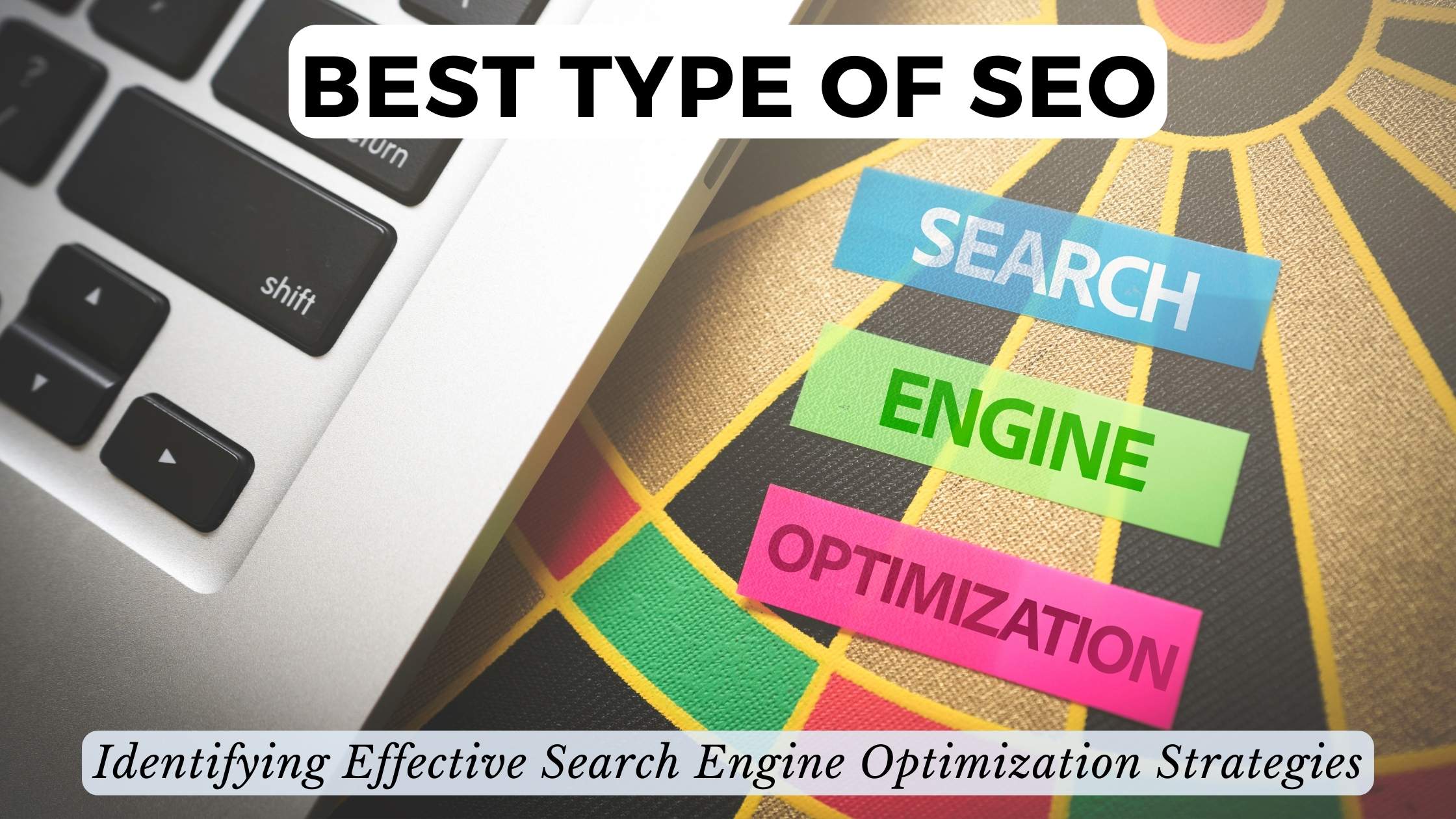Best Type of SEO: Identifying Effective Search Engine Optimization Strategies
- Conversational Marketing Software SEO Software Affiliate Marketing Software Marketing Tools


Best Type of SEO: Identifying Effective Search Engine Optimization Strategies
In the dynamic realm of digital marketing, Search Engine Optimization (SEO) remains a cornerstone for enhancing online visibility and driving organic traffic to websites. However, with the ever-evolving landscape of search engine algorithms and ranking factors, identifying the best type of SEO strategies can be challenging. In this comprehensive guide, we’ll delve into various SEO approaches and strategies to help you understand the most effective methods for optimizing your website and achieving sustainable search engine rankings.
Understanding Different Types of SEO
SEO can be broadly categorized into three main types, each focusing on different aspects of website optimization:
1. On-Page SEO:
On-page SEO refers to optimizing individual web pages to improve their search engine rankings and attract relevant traffic. This includes optimizing meta tags, headings, content, images, and internal linking structure to make the page more crawlable and relevant to target keywords.
2. Off-Page SEO:
Off-page SEO involves activities performed outside of your website to improve its authority, relevance, and trustworthiness in the eyes of search engines. This includes building backlinks from reputable websites, social media engagement, influencer outreach, and online reputation management.
3. Technical SEO:
Technical SEO focuses on optimizing the technical aspects of your website to enhance its crawlability, indexability, and overall performance in search engine results. This includes tasks such as optimizing site speed, fixing crawl errors, implementing structured data markup, and ensuring mobile-friendliness.
Identifying Effective SEO Strategies
When it comes to determining the best type of SEO strategies for your website, it’s essential to consider your specific goals, target audience, industry niche, and competitive landscape. Here are some effective strategies to consider:
1. Keyword Research and Optimization:
Conduct thorough keyword research to identify relevant search terms and phrases that your target audience is using. Optimize your website content, meta tags, and headings with these keywords to improve visibility and relevance in search results.
2. Content Quality and Relevance:
Focus on creating high-quality, informative, and engaging content that addresses the needs and interests of your target audience. Invest in creating comprehensive, well-researched content that provides value and answers users’ queries effectively.
3. User Experience Optimization:
Prioritize user experience by ensuring intuitive navigation, fast loading times, mobile responsiveness, and clear calls-to-action on your website. A positive user experience not only improves engagement but also signals to search engines that your site is trustworthy and valuable to users.
4. Link Building and Authority Building:
Build a diverse and authoritative backlink profile by earning links from reputable websites in your industry. Focus on creating valuable, shareable content that naturally attracts links and enhances your website’s authority and credibility in the eyes of search engines.
5. Technical Optimization:
Regularly audit and optimize the technical aspects of your website, including site structure, URL optimization, canonicalization, XML sitemaps, and schema markup. Addressing technical issues ensures that search engines can crawl, index, and understand your site’s content effectively.
Relevant SaaS Products
To streamline and enhance your SEO efforts, consider leveraging the following SaaS products:
1. SEMrush:
SEMrush is an all-in-one SEO toolkit that provides comprehensive solutions for keyword research, competitive analysis, site audit, backlink analysis, and more. With SEMrush, you can gain valuable insights into your website’s SEO performance and identify opportunities for improvement.
2. Moz Pro:
Moz Pro offers a suite of SEO tools designed to help you improve search engine visibility, track keyword rankings, conduct site audits, and analyze backlinks. With features like Moz’s proprietary Domain Authority metric and link explorer, Moz Pro provides actionable insights to boost your SEO efforts.
3. Ahrefs:
Ahrefs is a powerful SEO toolset that enables you to analyze your competitors, track keyword rankings, audit your website’s SEO health, and explore backlink opportunities. With Ahrefs, you can uncover valuable insights to optimize your website for better search engine rankings.
4. Screaming Frog:
Screaming Frog is a website crawler that allows you to audit and analyze various aspects of your website’s technical SEO. With Screaming Frog, you can identify issues such as broken links, duplicate content, and missing meta tags, helping you improve your site’s overall SEO performance.
5. Google Search Console:
Google Search Console is a free tool provided by Google that allows you to monitor and maintain your website’s presence in Google Search results. With Search Console, you can identify indexing issues, submit sitemaps, monitor search performance, and receive alerts about critical issues affecting your site’s visibility.
Conclusion
In conclusion, the best type of SEO strategy depends on a combination of factors, including your goals, audience, and competitive landscape. By implementing a holistic approach that combines on-page optimization, off-page tactics, and technical enhancements, you can improve your website’s search engine visibility and drive sustainable organic traffic. With the right tools, insights, and continuous refinement, you can stay ahead of the curve and achieve long-term success in the ever-changing world of SEO.
For businesses seeking comprehensive insights into SaaS tools for SEO optimization and management, Subscribed.FYI serves as a valuable resource. From SEO toolkits like SEMrush and Moz Pro to website crawlers like Screaming Frog, Subscribed.FYI provides detailed information and comparisons to help you make informed decisions about your SEO strategy.
Relevant Links:








